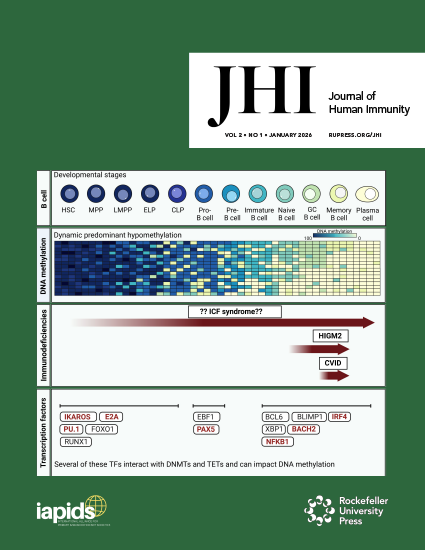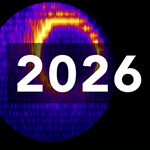Promotion and Discoverability
How we maximize your research impact
At Rockefeller University Press, we understand the importance of making your research widely accessible and visible to both your peers and the broader scientific community. Our comprehensive approach to enhancing article discoverability ensures that your work achieves maximum impact. Here’s how we stand out.
 Robust Metadata Tagging
Robust Metadata Tagging
Our granular tagging of metadata, including the use of persistent identifiers like ORCID, affiliation ROR IDs, and funder IDs, enhances your article’s discoverability across major databases like Scopus, Clarivate/Web of Science, and Crossref reporting.
 Strategic ResearchGate & PubMed Central Syndication
Strategic ResearchGate & PubMed Central Syndication
We deposit all published articles in ResearchGate, and Gold articles to PubMed Central, allowing your research to benefit from broader distribution and visibility by reaching a global audience of researchers and institutions.
 Enhanced Social Media Visibility
Enhanced Social Media Visibility
We promote every article an average of four to five times on social media, significantly more than our competitors. This heightened exposure increases the likelihood of your work being seen, shared, and cited across the scientific community. Our journals are active on Bluesky, Twitter/X, YouTube, and Instagram, and we’re constantly exploring new platforms to bring your research to the most relevant audience.
 Targeted Digital Marketing & Special Collections
Targeted Digital Marketing & Special Collections
Our digital marketing efforts include special thematic collections of articles and targeted campaigns, leading to additional usage of those articles that have been selected as well as an increased likelihood of discovering new related content.
 Events, Exhibiting, and Media Relations
Events, Exhibiting, and Media Relations
Journals with strong reputations benefit authors who publish in them. We bolster the recognition of our journals and authors through active participation in industry events, exhibitions, and media relations, further supporting article discovery. We also collaborate with communications professionals at authors’ institutions, alerting them of new articles by their researchers via the EurekAlert! Tip Sheet service.
How can you maximize your research impact?
Before publication
 Optimize for Search Engines
Optimize for Search Engines
Ensure your article is easily discoverable by using relevant keywords in the title, in the abstract, and throughout the article. This SEO (Search Engine Optimization) practice improves the article’s visibility in search engine results, making it more accessible to potential readers.
 Utilize Our Resources
Utilize Our Resources
During the submission process, we include fields for you to add social media posts and your social media handles. Enter your information so that we have this text on hand when your article is ready for publication.
 Create Multimedia Content
Create Multimedia Content
Develop engaging content such as video abstracts and infographics, summarizing your research findings. These formats can make your work more accessible and shareable, attracting a wider audience. Our journals encourage authors of accepted manuscripts to submit three-minute video summaries of their work. These videos are intended for a non-specialist scientific audience, and they are posted on YouTube and other social media channels.
Authors may also include a graphical abstract with their manuscript. A graphical abstract is a single, concise, and self-explanatory visual summary of the main findings of the article that should capture the content of the article at a single glance. If provided, the graphical abstract will accompany the published article and be used in all social media promotions to highlight the manuscript.
 Engage Your Press Office
Engage Your Press Office
Work with your institution’s press office in advance to craft a press release or a news story about your research findings. If your research is appropriate for a broad audience, media coverage can significantly boost the visibility of your research beyond the academic community. We encourage you to reach out to your press office as early as possible, as our rapid production times mean that papers are usually published online two to three weeks after acceptance. Also plan early to utilize your institution’s newsletters, websites, and social media channels to share your research. These platforms often have a broad audience, including potential collaborators.
After publication
 Post on Social Media
Post on Social Media
Share your work on social media platforms such as Bluesky, X/Twitter, Facebook, and Instagram. Tailor your message to each platform to engage different audiences. You can also join and participate in relevant academic and professional groups to share your findings with a community interested in your field of study. Be sure to follow our journals and tag our journals in your posts, and when you are published, share your and your co-authors’ handles with us at [email protected].
 Leverage Professional Networks
Leverage Professional Networks
Utilize platforms like ResearchGate and LinkedIn to share your publication with fellow researchers and professionals in your field. These networks also foster collaborations and discussions that can increase the visibility and impact of your work. JCB, JEM, and JGP authors who have ResearchGate profiles will see their titles added to publication pages automatically and have insight into usage statistics.
 Present at Conferences
Present at Conferences
If resources and time allow, presenting your research at conferences, seminars, and webinars can increase its visibility among your peers and create networking opportunities. These events are excellent platforms for promoting your work to an engaged audience.
Commitment to Your Success
Our dedication to the discoverability of your research is a testament to our commitment to advancing scientific communication. By choosing Rockefeller University Press journals, you ensure that your work not only reaches but resonates with the widest possible audience, amplifying its impact and contributing to the global scientific dialogue.
Customer Service
[email protected]
Rockefeller University Press
1230 York Ave, Box 183
Weiss 17th Floor
New York, NY 10065
USA
Advertisement




 Librarian Info Kit (PDF)
Librarian Info Kit (PDF) Subscription Guide (PDF)
Subscription Guide (PDF) Read & Publish Guide (PDF)
Read & Publish Guide (PDF)





